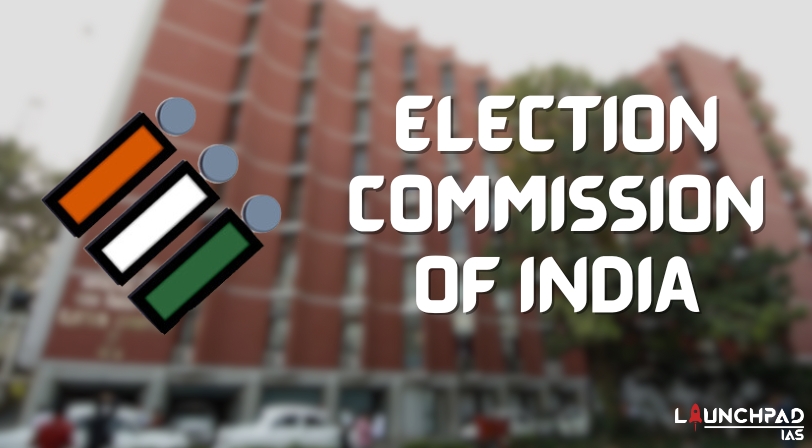The Election Commission is a permanent and independent body established by the Constitution of India directly to ensure free and fair elections in the country.
Article 324 of the Constitution provides that the power of superintendence, direction and control of elections to parliament, state legislatures, the office of president of India and the office of vice-president of India shall be vested in the election commission.
Composition Election Commission of India:
The constitution provides for the following provisions about the composition of the election commission:
- The election commission shall consist of the Chief Election Commissioner and a number of other election commissioners, if any, as the president may from time to time fix.
- The appointment of the chief election commissioner and other election commissioners shall be made by the president.
- When any other election commissioner is so appointed the chief election commissioner shall act as the chairman of the election commission.
- The president may also appoint after consultation with the election commission such regional commissioners as he may consider necessary to assist the election commission.
- The conditions of service and tenure of office of the election commissioners and the regional commissioners shall be such as the President may by rule
CEC & EC
- Today, the Election Commission has been functioning as a multi-member body consisting of three election commissioners.
- The chief election commissioner and the two other election commissioners have equal powers and receive equal salaries, allowances and other perquisites, which are similar to those of a judge of the Supreme Court.
- In case of a difference of opinion amongst the Chief Election Commissioner and/or two other election commissioners, the matter is decided by the Commission by majority.
- They hold office for a term of six years or until they attain the age of 65 years, whichever is earlier and can resign at any time or can also be removed before the expiry of their term.
Procedure for Removal:
They can resign any time before the expiry of their term but the CEC can be removed from office only through a process which is similar to the removal of Supreme Court Judge
What are the Powers and Functions of ECI?
Administrative:
- To determine the territorial areas of the electoral constituencies throughout the country based on the Delimitation Commission Act of Parliament.
- To prepare and periodically revise electoral rolls and to register all eligible voters.
- To grant recognition to political parties and allot election symbols to them.
- The Election Commission ensures a level playing field for the political parties in the election fray, through strict observance by them of a Model Code of Conduct evolved with the consensus of political parties.
- It decides the election schedules for the conduct of elections, whether general elections or bye-elections.
Advisory Jurisdiction & Quasi-Judicial Functions:
- Under the Constitution, the Commission has advisory jurisdiction in the matter of post-election disqualification of sitting members of Parliament and State Legislatures.
- The opinion of the Commission in all such matters is binding on the President or, as the case may be, the Governor to whom such opinion is tendered.
- Further, the cases of persons found guilty of corrupt practices at elections which come before the SC and High Courts are also referred to the Commission for its opinion on the question as to whether such person shall be disqualified and, if so, for what period.
- The Commission is vested with quasi-judicial power to settle disputes relating to splits/ mergers of recognised political parties.
- The Commission has the power to disqualify a candidate who has failed to lodge an account of his election expenses within the time and in the manner prescribed by law.
Also, check out: NEW CRIMINAL JUSTICE SYSTEM


